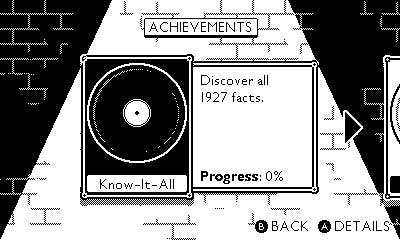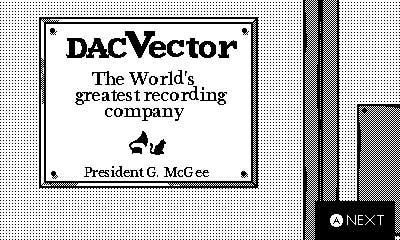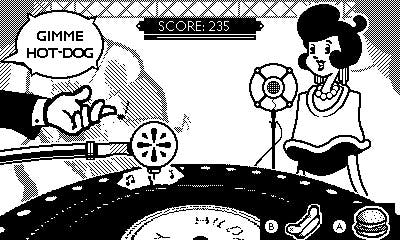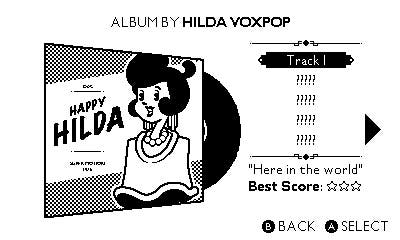Meet the 57-year-old who just released his first video game


At the age of 57, Chris Mandra has just released his first video game. This is something I find truly remarkable. For all the modern talk about portfolio careers and the death of a job-for-life, the idea of embarking on a completely new career in your sixth decade on Earth seems astonishing. At the age of 44, I sometimes daydream about starting out again, venturing into the unknown, maybe writing a travel book or doing that master’s degree I never got round to. But it doesn’t happen. There are too many forces holding me back, too much inertia from mortgages and children and the idea of having to learn everything again from scratch. What Mandra has done is nothing short of extraordinary.
Mandra cheerfully admits to knowing almost nothing about games. “I’m just not a very good gamer,” he says when we chat. “I’ve only played a handful of games.” When he was a kid, he tells me, his dad won an Atari 5200, which led to him getting pretty handy at Defender, and some of his friends had consoles. “But that was it,” he says. His wife suggested getting a PS2 in 2004 to play GTA, although mainly so they could listen to the radio stations. Most recently, in 2014, he bought a PS4 to play Destiny after he was intrigued to hear that video games had become bigger than the film industry. “I played the entire game with a hand cannon, because I didn’t know any better,” he says.
His passion is music. He has two master’s degrees from the Peabody Institute at Johns Hopkins University, one in musical composition and one in computer music. He’s released more than a dozen albums down the years, mostly psychedelic music where the shortest songs are seven minutes long. He plays in bands. During one memorable gig in 2012, the didgeridoo player collapsed on stage after suffering cardiac arrest. “Two of our fans in the audience, one was a trauma nurse and one was a guy who teaches how to do CPR, they both jumped on stage and start giving him CPR, which they do until the paramedics come and they get him to the hospital,” recalls Mandra. “Literally, and there’s no hyperbole whatsoever in what I’m about to tell you: he had CPR for 90 minutes. When they got him to the hospital, they were preparing him to be an organ donor. They went through five rounds of whatever their protocol is that ends up with the electroshock to the chest. And the doctor in charge said, ‘Listen, if this were me, I’d want you to do this one more time’. So they did it one more time, and his heart came back to life.” Three months to the day, Mandra and his band redid the show – and they called it the ‘Resurrection Show’.
But Mandra has tended to avoid the idea of pursuing a career as a musician. He reasons that he can make more money outside of music, then use that money to pursue his passion for playing and recording. So he’s been a music teacher, a consultant for a security systems company, an audio engineer for a hearing technology firm and a producer for US National Public Radio, amongst other things. That last job coincided with the idea of buying GTA to listen to the radio stations.
His latest job is teaching computer science at a high school. He quit his position at the security software company in 2022, thinking it would be trivial to find something else. “I’ve always had great luck with jobs, it’s never been that big a deal, so I was really shocked and humbled by the fact that it took the better part of a year to get this job,” he says. “As a 57-year-old man, there aren’t many opportunities.” Still, he’s enjoying his career change. “I’m learning a lot about younger generations and what’s important to them, and how they think about the world,” he says.
The path to the release of Mandra’s first video game started back in 2019. “Panic put the Playdate on Twitter on May 22 of 2019, and I saw it,” he explains. “And the history of recording and the turntable was in my head because I happen to know a guy named David Giovannoni, who in 2008 was on the front page of The New York Times for finding the earliest recording of the human voice in history. That sound was originally made in 1857, which was a full 20 years before Edison invented the phonograph. I was thinking about how people at the turn of the century, with turntables, with phonographs, they were doing things like: suddenly you could record something and play it backwards, or speed it up or slow it down. How they’re not different at all from people like Grand Wizzard Theodore, who discovered scratching and cutting. And I’ve talked to Grand Wizzard Theodore about this, and he told me, ‘I was in my bedroom, I was playing some records, they were very loud, and my mom told me to stop’. And he put his hand on the record to stop it, and then he would move it a little bit, and he started scratching music.”


All of this was tumbling through Mandra’s head when he stumbled across the reveal of Panic’s Playdate handheld. “If the Playdate didn’t have a crank, I wouldn’t have been interested, because I never had a Game Boy, I’m not a gamer,” he says. “But it was the crank that inspired me. If it didn’t have a crank, I wouldn’t have had the idea.”
That idea was using the crank to spin a turntable, and the details of what would become Direct Drive quickly came to him. The game takes place in 1927, the year that Mandra’s parents were born, a pivotal year that saw Charles Lindbergh fly across the Atlantic and saw the debut of talking pictures. The setting is the offices of DAC Vector, a play on RCA Victor, and Hilda Voxpop, the famous soprano, is coming into record an album. But the turntable that supplies her backing track isn’t working. “The motor for this thing is broken, so you, the intern, who’s the only free hand, you have to crank her music at just the right speed,” says Mandra. “And if you crank it too fast, because she has perfect pitch, she’s gonna sound flat and be mad. If you crank it too slow, she’s gonna sound sharp and be mad.”
The other singers in the game include a Cab Calloway-alike called Tungsten and a precocious child star modelled after Shirley Temple and played by Mandra’s child FiFi. The bootlegger Sweets Mackson was voiced by Mandra’s friend Lizzy Dean Holyfield from the apartment upstairs. But he died in 2020 after only recording scratch tracks, which Mandra had to work with as best he could. The game is dedicated to his memory.
Although Mandra had a background in computer music, he needed help with programming. In 2016 he had met the developer Dimitry Zhukov while working at SonicCloud, the hearing technology firm, and the pair immediately hit it off, even recording music together under the name Osaka Birds. “It’s funny because he’s, like, half my age,” says Mandra. “I’m older than his dad, but I would consider him one of my best friends.” Mandra explained his idea to make a Playdate game, and Dimitry enthusiastically agreed to come on board. “I did the storyboarding, the dialogue, all of the music, all of the recording, the performing, the mixing, the editing,” explains Mandra. “Dimitry did all of coding, except for the little bit of coding I did to make the music re-combinatorial. And he did a brilliant job, because as far as I can tell, it’s been basically bulletproof. He solved problems that I didn’t even know would have been problems. Like we were so tight in memory space that the GIF of the record had to be optimised or it was going to crash the whole thing once in a while.”



But what’s it like, making a video game when you’re a complete outsider to the games industry? For those of us reporting on it, the industry often seems characterised by toxic fans, ruthless executives and soul-destroying crunch. Mandra hasn’t experienced any of that. “I can say this as far as the games industry and the people I’ve met: it’s been unbelievably positive,” he says. “I have not met a single person that I thought was full of subterfuge or unkind. Alastair Low, for instance, the guy who made Tapeworm Disco Puzzle, I feel a great affinity for him because he’s one of these people who’s just interested in stuff. He’s like, why don’t I make a game for the Sega [Dreamcast]? Why don’t I make a game for the Game Boy? Then he does these things like pop-up books.”
Mandra adds that Panic has been remarkably helpful over the years. “Everybody there wants you to succeed, they don’t care if it’s a racing game, or if it’s a word search, or whatever it is. You have an idea, and they want to help you get your idea through the gate.” He adds that every game developer he has encountered has been more than happy to chat and share advice. “I’ve not met a more supportive, positive group of people in my life in any arena,” he says. “But is this the games industry? I don’t think so. I feel like we’re cool kids on the outskirts of the games industry.”
So. At the age of 57, Chris Mandra has just released his first video game. And it has done very well. Since being released on the Playdate Catalog in 2023, Direct Drive has picked up a prize for gameplay innovation at the GMB Game Awards and was called “perhaps the pick of the Catalog so far” by Edge magazine. “People have noticed it and have responded to it, it’s just extraordinary,” says Mandra. “I never would have expected it.” He adds that working on the Playdate has been a joy. “It’s got this incredible community where everybody wants to lift you up. It’s almost like a renaissance in gaming, I think, for indies and people who just want to do cool stuff.”
Mandra thinks there is no way he would have made his way into video games through the traditional route. He doubts that anyone at a games company would have hired him (and that’s without considering the industry’s longstanding problem with ageism, as discussed recently by Kotaku). He cites a Hungarian idiom that roughly translates as ‘find a little gate’. He had to find a different path: there’s always another way around if the main gate is locked.
Given the current state of the games industry, with companies partly attributing mass layoffs to a stagnation in console sales and the ever-increasing cost of making games, it’s intriguing to think of how one tiny innovation – a crank – inspired someone to make something, someone who had only played a handful of games in his life. Nintendo in particular has shown time and again how little changes like this – a stylus, the Wii Remote – can unlock new ideas and new audiences. Who knows what kind of games could be made in the future – and what kind of people will make them – if console manufacturers focus on thinking beyond those intimidatingly complicated control pads.
But let’s celebrate Mandra’s achievement. At 57 he is making waves with his debut video game. And I am in awe. “If I can do this, you guys can do this, anybody could do this,” he enthuses. “You have to be inspired and true to your vision and tick the boxes that are important to you.” It’s a rallying cry that’s enough to make me reconsider those postponed plans, mortgage payments be damned. And what’s more, Mandra is happy with his newfound home in the games industry, outskirts or otherwise. “I feel in a very holistic way, I’m exactly where I’m supposed to be.”




